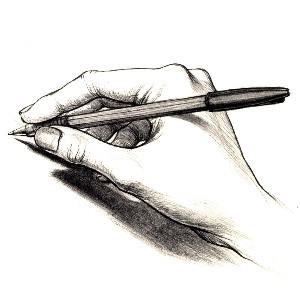
The modern university is based on a rupture, effected a millennium ago, between head and heart. This institution—the one in which we meet as teachers and students—is devoted almost exclusively to the technical and critical disciplines. Ascetic disciplines were left in the proverbial dust. Secularization rendered proverb and metaphor, even language itself, disenfleshed and idolatrized. Our task in this program is to become deeply aware of the devastation caused by this rupture, this loss. Because of what has been betrayed, we dare not simply imagine an alternative form of education, much less another new institution, devoted to the healing of this rupture or the recovery of any loss. Instead, we will, through disciplined, mutually supportive inquiry, become mindful of what we scholars participate in, here and now.
"Among all traditional forms of advanced learning, the university is the only one that has
succeeded in prying loose the acquisition of knowledge from advancement in sensual self discipline." Ivan Illich
This version of Awareness* focuses on writing as an ascetic practice. We begin by renouncing basic "principles" and "tenets" of the modern academy, like the notion that all work must be original with the student. In fact, good work is always derivative. In this program we will begin by plagiarizing. The first problem students will face is to find someone good to copy. The second problem will be to copy well and pay attention while doing that. We'll write a lot and pay close attention to matters of style. As in other ascetic practices, it is by becoming one with the rules that the possibility of transcendence lies. We'll proceed from there.
FROM THE COLLEGE CATALOG:
Attend. Paying attention to how events, people, the big wide world in all its tiny manifestations—how they all appear, how they mean anything, how they engage us—that’s what we’ll do. We’ll attend to the terms of our engagement, the costs, the ways we renounce in order to have a modicum of freedom—a freedom that turns out to be so strikingly different from the freedom that we think about, carelessly, as living beyond restraints, limits, duty. The freedom that is the effect of careful craft, discipline, and practice—that’s what we want to focus on. We’ll write a lot, not as a means of self expression, not to find a voice or a self, but to pay attention, to study, commit, love. “Creative writing requires a dual love of language and life, human and otherwise. The storyteller then sculpts these raw loves with acute observation, reflection, creative struggle, allegiance to truth, merciless awareness of the foibles of human beings, and unstinting empathy toward human beings even so” (David James Duncan).
Our inquiry requires attention to ascetic as well as critical practices. We will all participate in mind-body practices, lectio and other communal reading, and bookish study. Writing may include socio-historical inquiry, reportage, annotations, comedy, antilamentations, humor, fictionings of the present, manifestoes, confessions, statistics-based scandals, rants, incautious cautions, sightings, or prayers, but no poetry, plays, or, especially, plans. NB: We will not read "research papers." We might acknowledge that you did one, if you show us one and claim it as yours, but beyond that we will not go.
Students should attend this class for two quarters. This program provides continuity for those students enrolled in previous quarters of Awareness and those interested in independent work under the rubric of Awareness in the spring.
_____
* Awareness was offered by Sarah Williams and Bill Arney from winter, 2005, through spring, 2007. Before that, Sarah Williams offer Reading Jouissance as Ananda, and this fall and winter she will be offering, with Joe Feddersen and Laurie Meeker, Made for Contemplation. Awareness: Writing and Renunciation relies on some aspects the previous version of Awareness. However, this teaching team and program are different.



